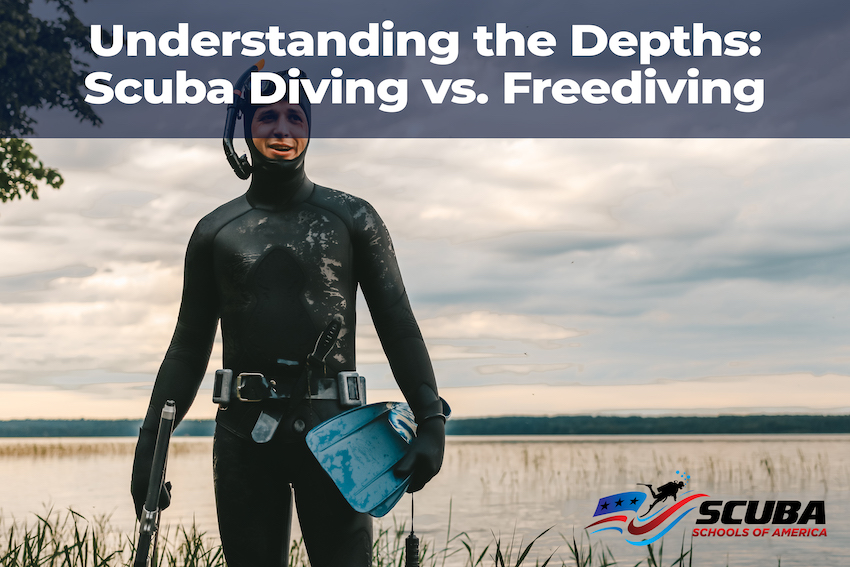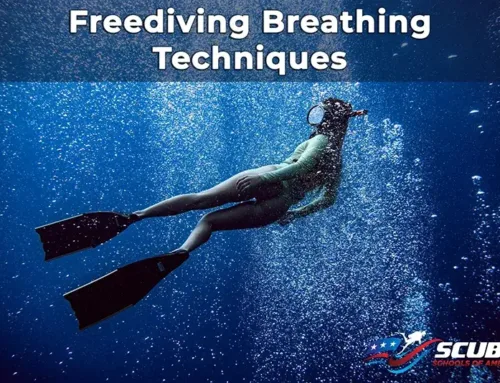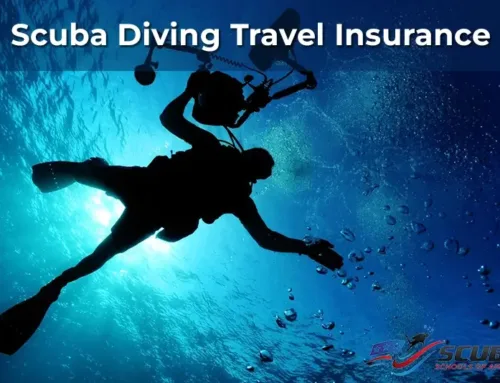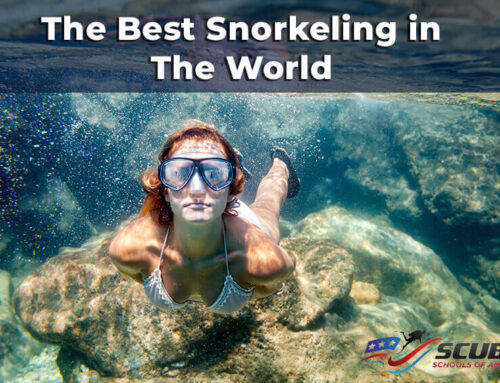The allure of the underwater world has long been a source of fascination and mystery, beckoning explorers to delve into its hidden depths. Among the most popular methods to traverse this enigmatic realm are scuba diving and freediving. Both offer unique pathways to the wonders beneath the waves, yet they diverge fundamentally in their approach, techniques, and the experiences they afford. Scuba diving equips adventurers with sophisticated gear to breathe underwater, enabling prolonged immersion and the ability to explore deeper regions. In contrast, freediving offers a more primal and minimalist experience, relying solely on the diver’s breath-holding capacity to interact intimately with the marine environment. This juxtaposition of scuba diving’s technical mastery against the raw, intrinsic challenge of freediving presents a fascinating spectrum of underwater exploration. Each discipline, in its essence, provides a distinct lens through which the mysteries of the ocean can be experienced and appreciated.
Essential Gear and Meticulous Preparation: The Foundations of Safe and Successful Scuba Diving
The Essence of Scuba Diving
The essence of scuba diving lies in the use of a self-contained underwater breathing apparatus (SCUBA), which enables divers to breathe while submerged. This specialized equipment allows for prolonged stays under the water, providing the opportunity to explore deeper aquatic realms that would otherwise be inaccessible. The use of SCUBA gear thus facilitates a unique and extensive exploration of underwater environments, offering divers the chance to experience the depths of the ocean with greater ease and for longer durations than is possible with unaided breath-holding techniques.
Equipment and Preparation
In scuba diving, the reliance on various pieces of equipment is paramount for both exploration and safety. Divers use a tank filled with compressed air, a regulator for breathing, a buoyancy control device (BCD) to maintain depth, fins for movement, a mask for clear vision, and typically a wetsuit or drysuit for thermal protection. Preparation for a scuba dive involves a meticulous check of all this equipment. This thorough preparation is crucial as it ensures the diver’s safety and the smooth functioning of the gear, which is essential for a successful and enjoyable dive. Proper equipment management is a fundamental aspect of scuba diving, highlighting the technical and safety-oriented nature of the sport.
Mastering the Depths: The Importance of Comprehensive Training and Certification in Scuba Diving
In the world of scuba diving, comprehensive training and certification are paramount. Scuba Schools International (SSI) plays a pivotal role in ensuring that aspiring divers receive the necessary education and certification to explore the underwater world safely. SSI’s programs cover a wide array of crucial topics, ranging from dive theory to mastering underwater navigation and emergency response techniques. With an SSI certificate, scuba schools in America demonstrate their commitment to equipping divers with the skills and knowledge needed for safe and responsible diving practices. As divers delve into the depths, SSI certification stands as a testament to their preparedness and dedication to the underwater adventure.
The certification process is a critical step, as it not only equips divers with the necessary skills but also instills a deep understanding of the complexities and responsibilities involved in scuba diving.
The Art of Freediving
Freediving, also known as apnea diving, is a distinctive form of underwater exploration where divers rely on a single breath to explore the depths. This practice transcends traditional sporting activities, merging the art of breath-holding with physical and mental discipline. It is an art form in itself, challenging divers to achieve a harmonious balance between body and mind. This harmony is crucial for successful and safe freediving, as it requires a deep understanding and control of one’s physical and psychological capabilities. The essence of freediving is not just in the physical act of diving but in the profound connection and synchronization between the diver’s inner self and the aquatic environment, making it a deeply personal and introspective experience.
Breath, Body, and Mind: Holistic Training Techniques for Mastering Freediving
Techniques and Training
Freediving training is centered on mastering breath-holding techniques, learning efficient underwater movement, and mental conditioning. Trainees are taught to regulate their heart rate, optimize oxygen usage, and adapt to the pressures of various depths. This holistic training approach equips freedivers with the skills necessary to dive deeper and stay submerged longer, safely, and effectively.
Embracing Simplicity: The Minimalist Approach in Freediving for Enhanced Freedom and Connection
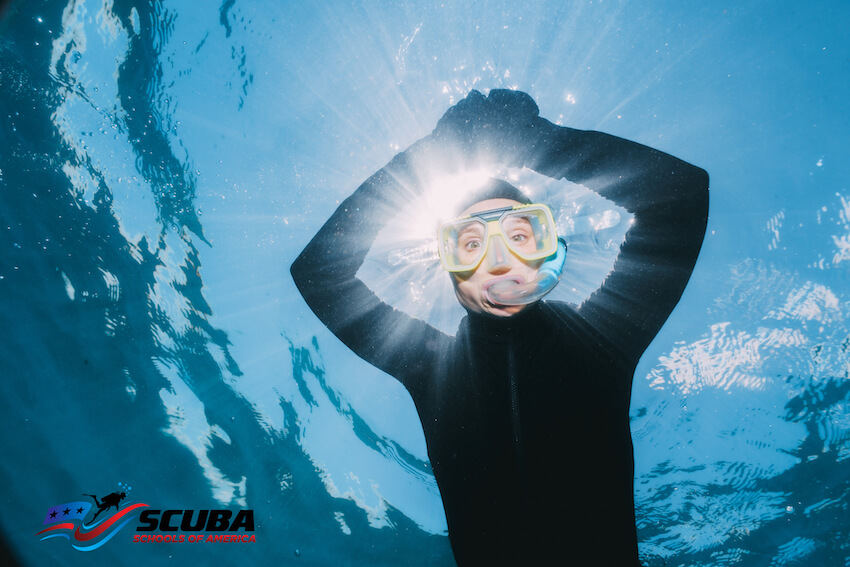
The minimalist approach in freediving focuses on using minimal equipment, usually limited to essential items like a mask, fins, and a wetsuit. This limited gear selection enhances the freediver’s sense of freedom and fosters a more intimate connection with the underwater environment, as it eliminates the encumbrance of heavy and bulky equipment typically used in other forms of diving.
Navigating the Physical and Psychological Challenges of Scuba and Freediving
Physical and Psychological Aspects
Scuba diving and freediving present distinct physical and psychological challenges. Scuba diving demands proficiency in equipment management and the careful monitoring of dive times and depths. Conversely, freediving emphasizes internal control and focuses on mental concentration and the mastery of one’s breathing impulses. This contrast highlights the unique skills and mental discipline required in each type of diving, with scuba diving leaning more towards technical proficiency and freediving towards mental and physical self-mastery.
The Role of Breath in Diving
In both scuba and freediving, mastery of breath control is essential, albeit for different reasons. Scuba divers are taught to breathe in a slow and deep manner, which serves dual purposes: it conserves the limited air supply and aids in managing buoyancy underwater. On the other hand, freedivers focus on increasing their capacity to hold their breath, which is a critical skill for diving without an air supply. This distinction underscores the importance of breath control as a fundamental skill in both diving disciplines, each tailored to the specific demands of the activity.
Prioritizing Safety in the Depths: Addressing Unique Risks in Scuba Diving and Freediving
Safety is a paramount concern in both scuba diving and freediving, each with its specific risks. Scuba divers need to be vigilant about decompression sickness, a condition arising from dissolved gases forming bubbles inside the body during ascent, and must also be prepared for potential equipment malfunctions. In contrast, freedivers face dangers associated with prolonged breath-holding, which can lead to loss of consciousness and the challenges posed by diving to significant depths. These different risks highlight the importance of appropriate training and safety protocols in both forms of diving to ensure the wellbeing of the divers.
Buddy System and Supervision
In the realms of both scuba diving and freediving, the practice of diving with a buddy or under supervision is highly recommended as a crucial safety measure. This approach ensures that assistance is readily available in the event of an emergency. The presence of a companion or a supervisor not only enhances the overall safety of the dive but also provides a vital support system for managing any unforeseen situations that may arise underwater, thereby significantly reducing the risks associated with both activities.
Diverse Approaches to Environmental Awareness and Interaction in Scuba and Freediving
Scuba diving and freediving provide distinct ways of experiencing and interacting with the marine environment. Scuba divers have the advantage of extended underwater duration due to their air supply, enabling them to conduct more thorough explorations of underwater sites. In contrast, freedivers often enjoy closer and more intimate encounters with marine life, largely due to their quieter and less intrusive approach. This difference in interaction underscores the unique experiences each type of diving offers, with scuba diving allowing for in-depth observation and freediving offering a more natural and close-up engagement with aquatic wildlife.
The Impact of Scuba and Freediving on Marine Ecosystems
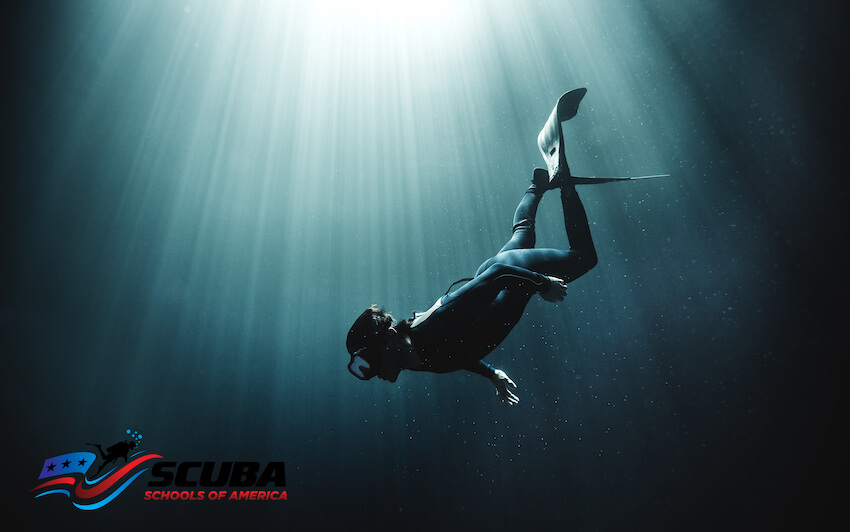
Both scuba diving and freediving exert an influence on the marine ecosystem, necessitating conscientious behavior from divers. Scuba divers are required to be cautious in order not to disrupt marine habitats with their equipment, which can be bulky and potentially harmful to delicate underwater ecosystems. Freedivers, though less encumbered by gear, must also remain vigilant about their physical presence, especially when diving in ecologically sensitive areas where even minimal human interaction can have significant impacts. This highlights the responsibility of all divers to minimize their environmental footprint and protect the aquatic life and habitats they enjoy.
Depth and Duration
The achievable depth and duration in scuba diving and freediving differ markedly due to the nature of each activity. Scuba divers have the advantage of diving to greater depths and remaining underwater for extended periods, courtesy of their external air supply. In contrast, the duration of a freedive is constrained by the diver’s ability to hold their breath, which naturally limits the length and depth of their dives. Despite this limitation, freedivers often report a more profound and intense connection with the underwater environment during their shorter, more direct immersion in the aquatic realm. This contrast underscores the unique experiences and capabilities associated with each diving method,
The Exhilarating Journey of Discovery in Scuba and Freediving
Regardless of whether one chooses scuba diving or freediving, both activities offer the exhilarating experience of underwater discovery. Each method allows individuals to delve into the vast and enigmatic depths of the ocean in its own distinctive manner. Scuba diving provides the means to explore deeper and for longer periods, revealing the secrets of the underwater world in detail. In contrast, freediving offers a more immediate and personal interaction with the marine environment. Both forms of diving, however, unite in their ability to uncover the mysteries and wonders of the ocean, providing unforgettable experiences and insights into a world that remains largely unexplored by humans.
Embracing the Depths: Understanding the Unique Worlds of Scuba and Freediving
In conclusion, scuba diving and freediving represent two distinct methodologies for exploring the underwater realm, each characterized by its specific techniques, experiences, and challenges. Scuba diving, with its reliance on external air supply, allows for extended underwater exploration, while freediving offers a more immediate and intimate connection with the marine environment, limited by breath-holding capabilities. Understanding the inherent differences between these two forms of diving is crucial for anyone considering engaging in these captivating aquatic adventures. Recognizing the unique aspects of each will not only enhance the diving experience but also ensure a more informed and safer approach to underwater exploration.
Exploring the Depths: Scuba Diving and Freediving Opportunities in Scuba Schools of America
In conclusion, the world of scuba diving and freediving offers unparalleled opportunities for exploration and adventure beneath the waves. As scuba schools in America, it is our mission to foster a community of skilled and responsible divers who are passionate about the ocean and its wonders. Through comprehensive training, certification, and a dedication to safety, we empower divers to explore the depths with confidence and respect for the marine environment.
We invite you to get in touch with us to embark on your journey into the underwater realm. Whether you’re interested in scuba diving or freediving, our experienced instructors are here to guide you every step of the way. Together, let’s discover the beauty and excitement that lie beneath the surface of our oceans. Contact us today to start your adventure into the fascinating world of underwater exploration!

